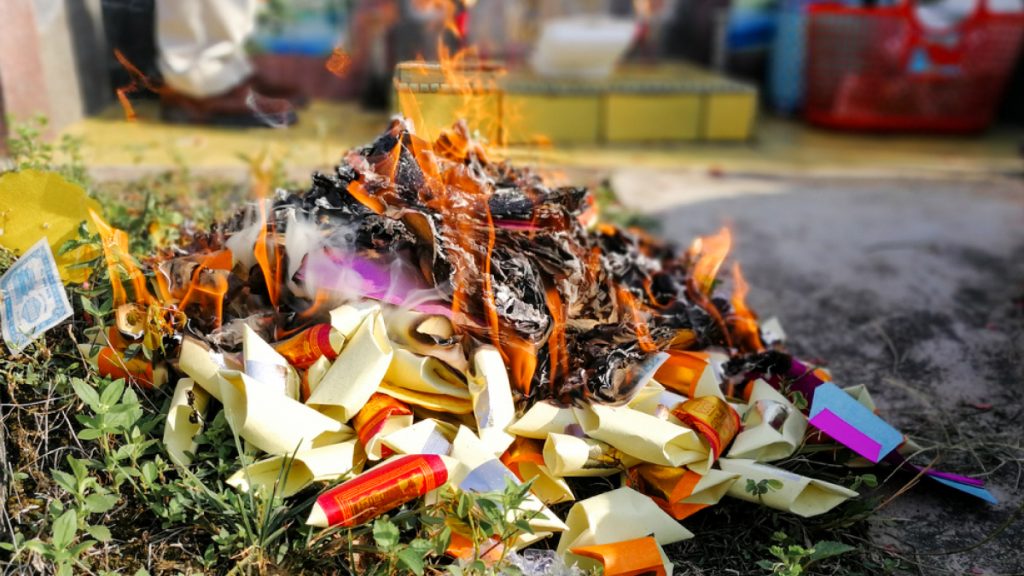The Qingming Festival, also known as Tomb-Sweeping Day, is a traditional Chinese festival observed on 4th or 5th April each year. This festival is a time for Chinese families to honour their ancestors by visiting their graves, cleaning the tombstones, and making offerings. In Malaysia, where there is a significant Chinese community, Qingming is a deeply respected and widely observed tradition.
Qingming Festival Dates (2024-2027)
| Year | Date | Day | States Observed |
|---|---|---|---|
| 2024 | 4 April | Thursday | Nationwide (observance) |
| 2025 | 4 April | Friday | Nationwide (observance) |
| 2026 | 4 April | Saturday | Nationwide (observance) |
| 2027 | 5 April | Sunday | Nationwide (observance) |
History and Background
The Qingming Festival has its origins in ancient China, dating back over 2,500 years. It is traditionally a time to remember and honour ancestors, reflecting the Confucian value of filial piety. In Malaysia, the festival has been observed by the Chinese community for generations, maintaining its cultural and spiritual significance.
Malaysian Traditions and Cultural Significance
Tomb-Sweeping
The central activity of the Qingming Festival is tomb-sweeping. Families visit the graves of their ancestors to clean the tombstones, clear away weeds, and make repairs. This act of maintenance and respect is a way to honour the memory of the deceased and ensure the gravesites are kept in good condition.
Offerings and Rituals
Offerings are an important part of the Qingming Festival. Families bring food, tea, wine, and other items to the gravesites to offer to their ancestors. Paper money, known as joss paper, and other symbolic items are burned as offerings. These rituals are believed to provide for the ancestors in the afterlife and ensure their blessings.
Prayer and Reflection
The festival is also a time for prayer and reflection. Families gather at the gravesites to pray for their ancestors, seeking their blessings and guidance. This spiritual connection reinforces the bond between the living and the deceased, and it is a time to reflect on the importance of family and heritage.
Picnics and Family Gatherings
After the rituals and tomb-sweeping, families often have picnics near the gravesites. Traditional foods are shared, and the gathering becomes a time for family bonding and remembrance. This practice highlights the importance of family unity and the continuation of cultural traditions.
Visiting Ancestral Temples
In addition to visiting gravesites, some families also visit ancestral temples to make offerings and pray. These temples are dedicated to the worship of ancestors and are important cultural and religious sites for the Chinese community in Malaysia.
Qingming Festival Celebrations Across Malaysia
Kuala Lumpur
In Kuala Lumpur, the Qingming Festival is observed by the city’s Chinese community with visits to cemeteries and ancestral temples. The Hokkien Cemetery and other burial sites are busy with families performing tomb-sweeping and making offerings. Ancestral temples, such as the Thean Hou Temple, also see many visitors during this period.
Penang
Penang’s rich cultural heritage includes the observance of the Qingming Festival. Cemeteries and ancestral halls in George Town and other parts of the island are frequented by families. The Cheah Kongsi and Khoo Kongsi, prominent clan houses, play a significant role in the festival’s rituals and gatherings.
Johor Bahru
In Johor Bahru, the Chinese community observes the Qingming Festival with traditional rituals at cemeteries and temples. The city’s Chinese cemeteries and places like the Johor Old Chinese Temple become focal points for the festival’s activities, with families coming together to honour their ancestors.
Sabah and Sarawak
In East Malaysia, the states of Sabah and Sarawak also observe the Qingming Festival. The Chinese communities in cities like Kota Kinabalu and Kuching perform tomb-sweeping and make offerings at local cemeteries. The festival’s customs are upheld with respect and dedication, reflecting the cultural diversity of the region.
Conclusion: A Tradition of Respect and Remembrance
The Qingming Festival in Malaysia is a deeply meaningful occasion that honours the memory of ancestors and reinforces family bonds. Through tomb-sweeping, offerings, prayers, and family gatherings, the Chinese community in Malaysia maintains a tradition that spans generations. The festival is a testament to the enduring value of filial piety and cultural heritage.
Frequently Asked Questions (FAQs)
Is the Qingming Festival a public holiday in Malaysia?
No, the Qingming Festival is not a public holiday in Malaysia. It is an observance celebrated by the Chinese community across the country.
How do Malaysians typically celebrate the Qingming Festival?
Malaysians celebrate the Qingming Festival by visiting gravesites for tomb-sweeping, making offerings, praying, and having family gatherings. Some also visit ancestral temples.
What are some traditional foods associated with the Qingming Festival in Malaysia?
Traditional foods for the Qingming Festival include roasted meats, fruits, rice cakes, and other offerings brought to the gravesites. These foods are often shared during family picnics.
What are some popular destinations in Malaysia to experience the Qingming Festival?
Popular destinations include cemeteries and ancestral temples in Kuala Lumpur, Penang, Johor Bahru, and the states of Sabah and Sarawak, where families gather to perform traditional rituals and honour their ancestors.

